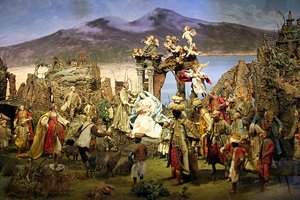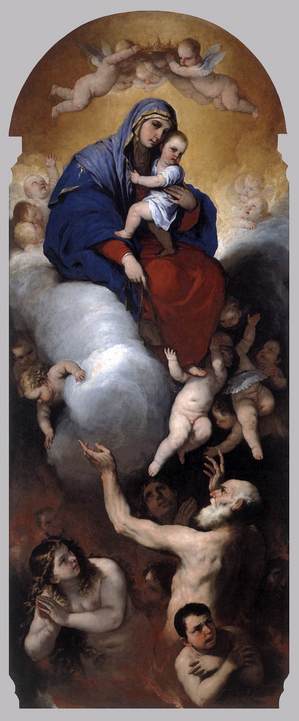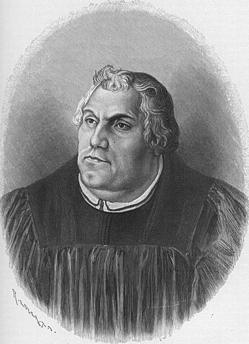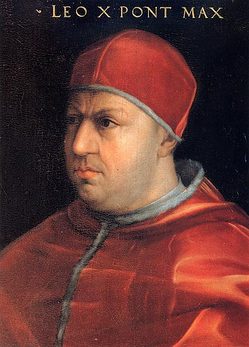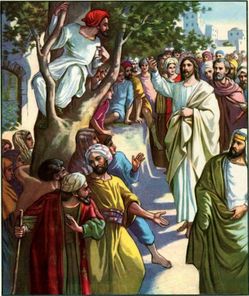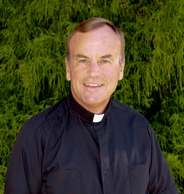 At this moment, family, friends, and Jesuits are gathering for the Mass of Christian Burial for the Reverend Father Allen P. Novotny, SJ, 58, President of Gonzaga College High School, Washington, DC. I mention this because I had the privilege of living with Allen for a year and liked him very much. I’ve been saddened since hearing the news on October 27th that Allen died earlier that day from a mutual friend. I was unable to make the funeral Mass but have not ceased praying for Allen’s peace and God’s mercy upon Allen and the rest of us. Eternal rest, dear friend.
At this moment, family, friends, and Jesuits are gathering for the Mass of Christian Burial for the Reverend Father Allen P. Novotny, SJ, 58, President of Gonzaga College High School, Washington, DC. I mention this because I had the privilege of living with Allen for a year and liked him very much. I’ve been saddened since hearing the news on October 27th that Allen died earlier that day from a mutual friend. I was unable to make the funeral Mass but have not ceased praying for Allen’s peace and God’s mercy upon Allen and the rest of us. Eternal rest, dear friend.
Catholics don’t celebrate Jewish holy days, why?
Not long ago a friend asked me why Catholics don’t celebrate
the Jewish holy days. Good question.
A response to the question as to why we
don’t celebrate the Jewish holy days would be along these lines: the Paschal
Triduum is the Christian Passover, the true Pasch. Even the Greek and Latin
name for Easter tells us that (as also the derivation of the name for Easter in
Spanish, French, Italian from the same root).
In one sense, Jesus’ teaching was
in continuity with Judaism (Mt 5.17: “Think not that I have come to abolish
the Law”); but he also in Matthew 5 puts himself forward as a higher Lawgiver
than Moses (“you have heard it said, but I tell you…”). I suggest
reading Rabbi Jacob Neusner’s book, A Rabbi Talks with Jesus, which makes this
point very clear. The Pope himself said in Jesus of Nazareth that Neusner’s book is
an excellent example of honest and reasoned argument between a believing Jew
and the Jesus of the gospels.
Continue reading Catholics don’t celebrate Jewish holy days, why?
The Crèche at Regina Laudis: The Timeless story of a birth in Bethlehem …
If the crèche at
the Abbey of
Regina Laudis strikes you as a little out place, there’s a good
reason. The austere Yankee barn that houses it is a world away from its previous
home. Handcrafted by artisans in Naples, the intricate nativity scene was
presented as a coronation gift to Victor Amadeus II, king of Sardina, in 1720.
It remained among Italian nobility until it was purchased by Loretta Hines
Howard, an artist and collector, in 1949. She immediately donated it to what
was then a fledgling Benedictine Abbey in, fittingly, Bethlehem, Connecticut
(although the nuns insist the name is a coincidence).
The crèche takes a few
liberties with the traditional nativity story. Instead of a Judean village,
Bethlehem appears here somewhere on the coast of Italy. The stable has been
replaced by Corinthian columns, and the traditional kings and shepherds are
joined by a whole host of other characters, who have shed their New Testament
robes for 18th-century knickers and coats. In one corner, some
peasants argue over the contents of a stem pot. In another, a noblewoman walks
her whippet on a leash. The crowd is puzzling at first, though it may
serve a distinct purpose. “For as
many people as there are, there are attitudes toward the birth of Christ,” says
Sister Angèle Arbib, who helps care for the crèche. She points out some figures
who seems reverential, others who seem distracted or dis-believing: “It’s so
representative. When people come here to see the crèche, they identify with
someone in here.”
And people of all faiths do come to see it. The mass of
Christmas pilgrims has returned after a recent restoration had taken the crèche
out of public view for three years. Conservators from New York’s Metropolitan
Museum of Art painstakingly repaired each of the 68 figures and the tiny
hand-sewn outfits they wear. The results are stunning. The crèche now stands as
a testament to the continued support of the community of nuns,
preservationists, and believers that has formed around it. It’s fitting. After
all, what is a nativity other than a story of people coming together?
Shatwell
November/December, Vol. 74, No. 6.
Abbey of Regina Laudis
273 Flanders Road
Bethlehem, CT
The crèche is open to the public daily 10-4 through Jan. 5 (closed Jan. 6-Apr. 24)
203.266.7727
Pope prays for Iraq’s true re-birth
Since Sunday how could our hearts not be moved by the dirty killing of 58 and wounding of countless others in Our Lady of Salvation Church (a Syrian Catholic Church in Baghdad)? How could we not have heavy hearts and mournful spirits at the news of villainous actions toward others, especially those at prayer? Our brothers and sisters in the faith, among them 2 priests –who brought Christ to us– were bruttally murdered by Muslim extremists.
We pray for the eternal rest of the dead, healing of the ill and forgiveness of the perpetrators. That’s what the Lord would do, I am convinced. This is what we are asked to do by the Pope. Indeed, we pray for peace and re-birth in Christ.
Let’s pray for Chaldean Cardinal and Patriarch Emmanuel III Delly, the other bishops of Iraq with the priests, deacons, sub-deacons and laity.
The Holy Father has spoken out in the last days and he does so again. Read his remarks here.
Vote: it’s necessary for Catholics
Just back from Mass for the Faithful Departed and from voting.
Have you prayed and voted???
Catholics vote because it is “… for the promotion of the common
good” (Benedict XVI)
Voting is a “… serious moral obligation…” and Catholics “…
can never vote for someone who favors absolutely what’s called the ‘right to
choice'” (Abp R. Burke)
Give rest, O Christ to your servants
Forgiven by the grace of Christ, a homily for All Saints & All Souls in light of indulgences and the Reformation
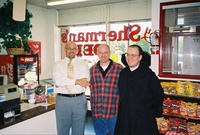
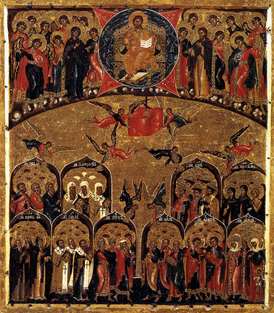
After earth’s Exile, I hope to go and enjoy You in the Fatherland, but I do not want to lay up merits for heaven. I want to work for Your Love alone with the one purpose of pleasing You, consoling Your Sacred Heart, and saving souls who will love You eternally.In the evening of this life, I shall appear before You with empty hands, for I do not ask You, Lord, to count my works. All our justice is stained in Your eyes. I wish, then, to be clothed in Your own Justice and to receive from Your Love the eternal possession of Yourself. I want no other Throne, no other Crown but You, my Beloved!
I never approved of a schism, nor will I approve of it for all eternity…. That the Roman Church is more honored by God than all others is not to be doubted. St. Peter and St. Paul, forty-six Popes, some hundreds of thousands of martyrs, have laid down their lives in its communion, having overcome Hell and the world; so that the eyes of God rest on the Roman Church with special favor. Though nowadays everything is in a wretched state, it is no ground for separating from the Church. On the contrary, the worse things are going, the more should we hold close to her, for it is not by separating from the Church that we can make her better. We must not separate from God on account of any work of the devil, nor cease to have fellowship with the children of God who are still abiding in the pale of Rome on account of the multitude of the ungodly. There is no sin, no amount of evil, which should be permitted to dissolve the bond of charity or break the bond of unity of the body. For love can do all things, and nothing is difficult to those who are united (Martin Luther to Pope Leo X, January 6, 1519).
Truer words were never spoken! How unspeakably sad that Luther finally decided not to send this letter to the Pope. How differently things might have turned out if Luther had sent it, and if the German princes had not gotten involved!
Obama has a Catholic problem, big time
The other day the New York Times published a graph
showing, according to polls, that Catholic voters pose a serious problem for
tomorrow’s election. Interesting. The red bar demonstrates that a 24% lead for the
Republicans among US Catholics.
Remember, Catholics voted for Barack Obama, 54-44% in 2008. No poll
tells the whole truth and, in my are barely an indicator of what is really
thought by those polled. This poll is no different. However, if the pollsters
are remotely correct, Catholics could lead the way to change in the November 2
election from Democrat-to-Republican.
different in their voting patterns than the general public. Sad but true. And I
find this fact to be a disappointing fact. Discriminating who these Catholics
are as active (or non-active) is curious. The polls tell us that weekly
church-going Catholics in 2008 did not vote for Democrats, more or less.
The Human Experience goes to Madrid, coming to New Haven
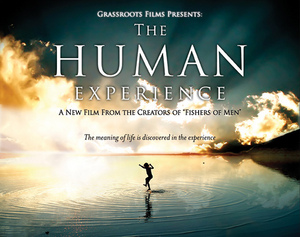 If you’ve not seen the Grassroots film documenting 2 young men’s interrogation of life in the film “The Human Experience,” then I would say you’ve missed a great opportunity to think about the reality with which we are confronted with daily.
If you’ve not seen the Grassroots film documenting 2 young men’s interrogation of life in the film “The Human Experience,” then I would say you’ve missed a great opportunity to think about the reality with which we are confronted with daily.
Catholics killed by Al Qaeda Muslims
Catholics in Our
Lady of Salvation Church in Baghdad were held hostage and some killed and
wounded by a group of Al Qaeda militants. The siege tragically ended in death
when Iraqi security forces raided the church in order to free the faithful
being held inside.
During his All Saints Angelus address today in Rome, Pope
Benedict said, “Last night, in a very serious attack on the Syrian Catholic
Cathedral in Baghdad, dozens of people were killed and wounded, including two
priests and a group of faithful gathered for Sunday Mass.”
Benedict continued, “I
pray for the victims of this senseless violence, all the more ferocious as it
affected defenseless civilians, this closeness to the martyred Christian
community, targeted yet again by terrorists, and encouraged all pastors and
faithful to be strong and firm in hope.”
“Faced with the brutal violence that
continues to tear the peoples of the Middle East apart,” Pope Benedict ended the Angelus talk by saying: “I renew
my appeal for peace: it is God’s gift, but it is also the result of the efforts
of men of good will, national and international institutions. We must all join
forces to ensure an end to all violence!”
